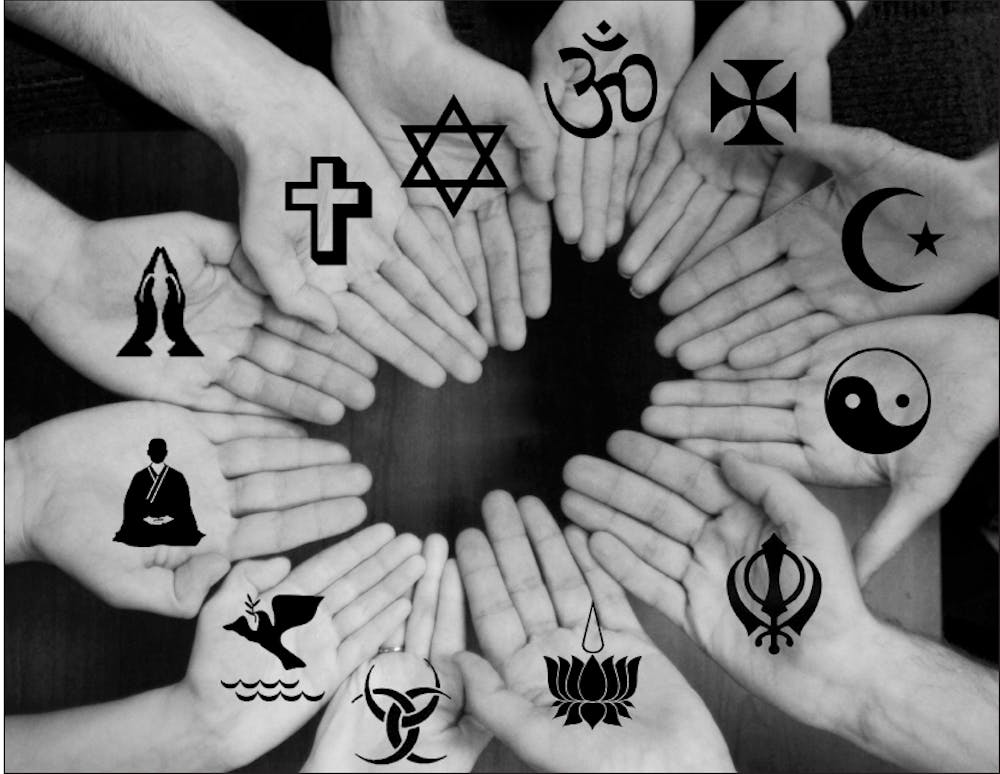Elon University was founded by the modern-day United Church of Christ in 1889. In the 1930s, our mascot was coined as the Fighting Christian. The Truitt Center for Religious and Spiritual Life serves as the official home for spiritual life on campus, sponsoring the efforts of 15 different religious organizations.
And yet, despite Elon’s revitalized efforts to promote diversity on campus, some students still remain skeptical as to whether the university’s current atmosphere is an accurate reflection of its commitment to the cause. According to the results of a recent interfaith survey taken by 261 Elon students, it seems the student body remains divided in its beliefs as to whether Elon can be considered a spiritually diverse institution.
The results indicated that Christian students, who represented the majority of the survey participants, ultimately perceive Elon’s campus to be considerably more diverse than students who identify with other faiths or as non-religious. In addition, students who identify themselves as non-religious indicated they felt significantly less accepted on campus in comparison to religious students.
With Elon having reaffirmed its commitment to promote all forms of diversity on campus in response to previous incidents of racial and social bigotry, it seems its awareness of prevailing student concerns regarding religious diversity has been somewhat lacking. While the surveyed majority of students, who identify themselves as Chrisians, believe Elon to be a tolerant and diverse campus, it seems those students in the non-Christian minority feel differently.
And while Elon officially maintains a strict “no tolerance for intolerance” mindset, it seems there must be something present in the Elon atmosphere to evoke such a mixed reaction about Elon’s image as a diverse environment.
Students in the survey who identify themselves as non-religious indicated they were not nearly as comfortable expressing their personal beliefs in comparison to those who ascribe to a particular faith system.
But concerns have recently arisen regarding the university’s implementation of prayer into formal university events, and whether Elon’s tradition of saying prayers at university events could be considered stifling to those who do not ascribe to any particular faith.
Every year, traditional university events like convocation, graduation and the Turning 21 Dinner all begin with a prayer.
[box][poll id="6"][/box]
Despite being no longer officially affiliated with a specific religious faith, Elon still utilizes prayer to help commemorate university traditions. And while a Christian organization playd a fundamental role in Elon’s founding, this practice now has the potential to cause considerable discomfort for Elon students.
Now we recognize that Elon’s practice of incorporating prayers to help mark ceremonial campus events is a common habit, similar to the nation-wide tradition of integrating prayer into university events.
In an ideal world, the prayers are brief and non-specific. They are meant to be received by an audience of mature adults representing an assembly of higher education, consuming only a brief portion of the overall ceremony, one that is predominantly secular in nature.
The primary purpose of the prayer is not indoctrination of present listeners, but instead a recognition of the potential role of divine providence in the institution’s recent achievements and realized goals.
And while Elon’s practice of incorporating prayers into university events is merely a means of marking tradition, concerns still exist if Elon’s future diversity proposals will prove to be more accommodating to those in the spiritual minority on campus. Particular concerns are being directed toward the creation of the new Multi-faith center, as some students fear that the building will not live up to its purpose.
With construction of the new Multi-faith center well underway, there is discussion among students and faculty related to the question of whether Elon’s center will provide equal accommodations for non-religious students compared to those already present for religiously-affiliated students. We believe that while these students’ concerns need to be more openly addressed, the Truitt Center is already designated to provide opportunities for all interested students representing all belief systems, both spiritual and secular.
According to the Truitt Center’s mission statement, their “mission is to encourage students to honor the spiritual dimension of life, be vitally connected to a faith tradition, embrace the present responsibility and the future with hope, and live the principles they value.”
It can be assumed that no matter what belief system to which a student ascribes to, they will be welcomed at the Truitt Center.
Having said this, students should not believe that it is solely the university's responsibility to proactively create opportunities for students of any belief system to congregate and foster discussion.
Rather, the responsibility should fall more in the hands of Elon students, as they are usually the impetus of most student-led campaigns and discussions on campus relating to religious matters.
Creating an authentic and diverse religious life at Elon is dependent upon the open minds of students and their willingness to accept and explore other faiths.


